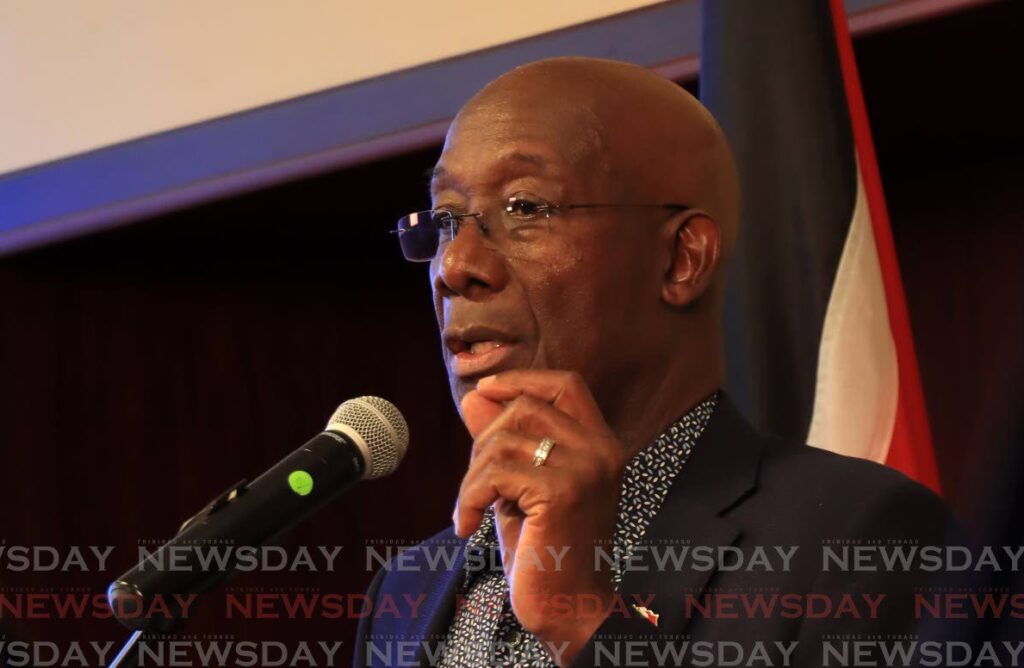Property tax imposition

TREVOR SUDAMA
I AM PROMPTED to write about the property tax imposition by two statements made by Prime Minister Rowley a couple days ago. The statements were no doubt intended for the edification of the faithful to bolster partisan support but they need to be identified as political propaganda.
The first statement as published in the press reads: “The vast majority of voices that you hear attacking property tax in Trinidad and Tobago are voices that have property outside of Trinidad and Tobago.” I don’t know how Dr Rowley arrived at that conclusion, whether by a process of enumeration of the identities of those in opposition to the tax and the location of their respective properties with the assistance of foreign governments in reporting nationals who own properties in their jurisdictions.
Since a very substantial number of citizens are opposed to the tax itself or to the tax on the basis of its current calculation, the statement implies that tens of thousands of citizens are owners of properties overseas. It also implies that those who do not oppose the tax have no property overseas, including members of his own party and past and present members of PNM administrations. The propagandist nature of the declaration seems obvious.
I categorically state that I oppose the property tax being imposed at present and I don’t own a square foot of property overseas. I support property tax in principle for defined purposes but I must be convinced of the rationality and fairness in arriving at the annual rental valuation. I am also opposed to the exorbitant figure of the current annual property tax assessment.
In my own case I received a Notice of Valuation in December 2023 in response to which I immediately completed a valuation objection form and submitted it to the Inland Revenue Division office in San Fernando on December 4. To date, over three months later, I have not had the courtesy of a reply. I have now received a notice of the amount of the tax payable, to which I have responded by registered mail to the Board of Inland Revenue, again outlining the reasons for my objections.
I am not aware of any justification for utilising assumed rental values to arrive at the assessment for property tax. There has been no transparency with respect to the calculation of annual rental value which appears to be subjective and devoid of rationality.
My ordinary home stands on over just one lot of land in a low to lower middle income area in close proximity to a low-income HDC development. The area consists of many unmaintained empty plots, together with a few derelict buildings. It is highly irrational and unrealistic for the annual rental value of my property to be calculated at $106,608.12, which translates to just under $9,000 per month, which could never be obtained for the actual rental of my property on the market.
In the past, I paid $279 annually in land and building taxes. While I am prepared to pay a higher sum, it cannot be $2,878, which is over ten times what I paid before and on the dubious and hardly realisable promise of enhanced services from the local government authority.
I am not paying the assessed annual property tax of $2,878 if I do not get a satisfactory response to my objections from the Inland Revenue Division before September 30, which may mean seeking the clarification of my rights from the courts in terms of transparency, rationality, consistency, fairness and equity. I encourage others similarly affected to do the same.
The second issue is Rowley’s assertion that the alleged consequence of not receiving the revenues from the proposed property tax would force the Government to approach the International Monetary Fund (IMF) for fiscal relief. This is transparent fearmongering and a spurious basis for attacking opposition to the tax.
The revenue earmarked to be received from the proposed property tax is between $400 million to $500 million at best. This figure could be secured without much difficulty by reducing wasteful, unnecessary and unproductive expenditure in the 2024 budget of $59 billion, $209 million of which would obviate the need to impose property tax at the proposed level. In order to investigate a request, the IMF would surely examine the composition of expenditure proposed in the budget and its justification.
Let me remind Rowley that it was the grossly irresponsible and wantonly profligate spending of the oil windfall by PNM administrations in the 1970s and early 1980s (money is no problem) which forced the NAR government in 1987 to seek urgent fiscal and balance-of-payment support from the IMF subject to the conditionalities prescribed.
If today there is an alleged necessity to seek assistance from the IMF, it is not due to the non-payment of property tax but due to the fact that over five decades successive governments (mainly PNM) have failed to restructure the economy and establish various additional revenue streams, especially from increased and diversified export earnings. The continuing singular reliance for our fiscal well-being on the diminishing and problematic energy sector is a recipe for economic stagnation and regression.


Comments
"Property tax imposition"